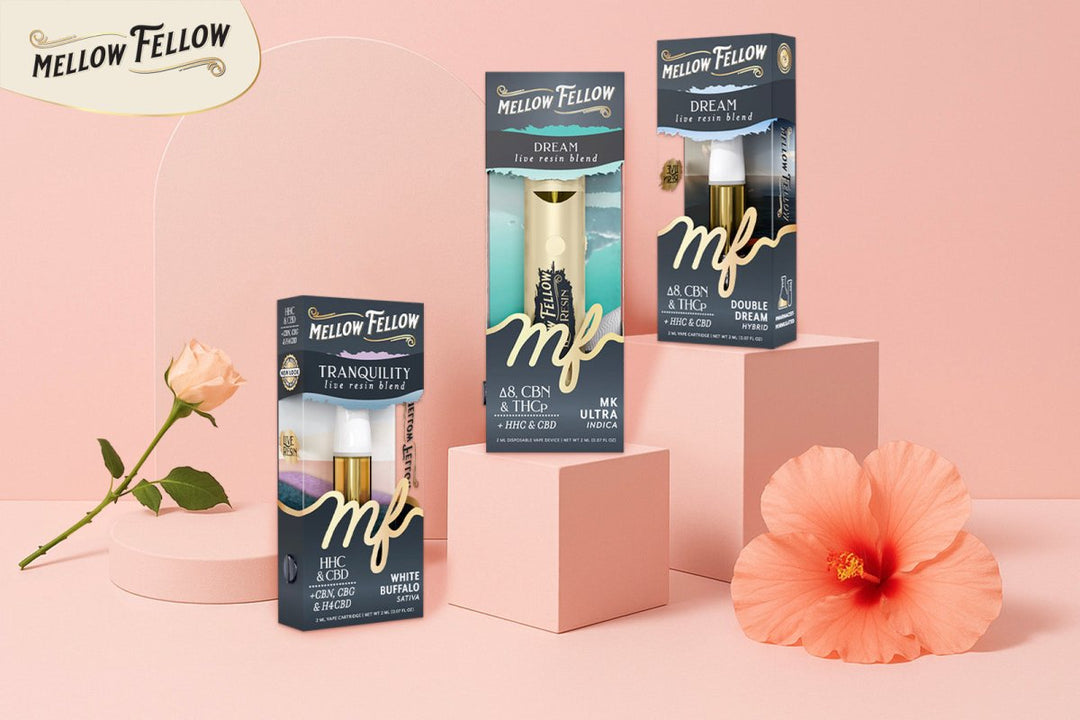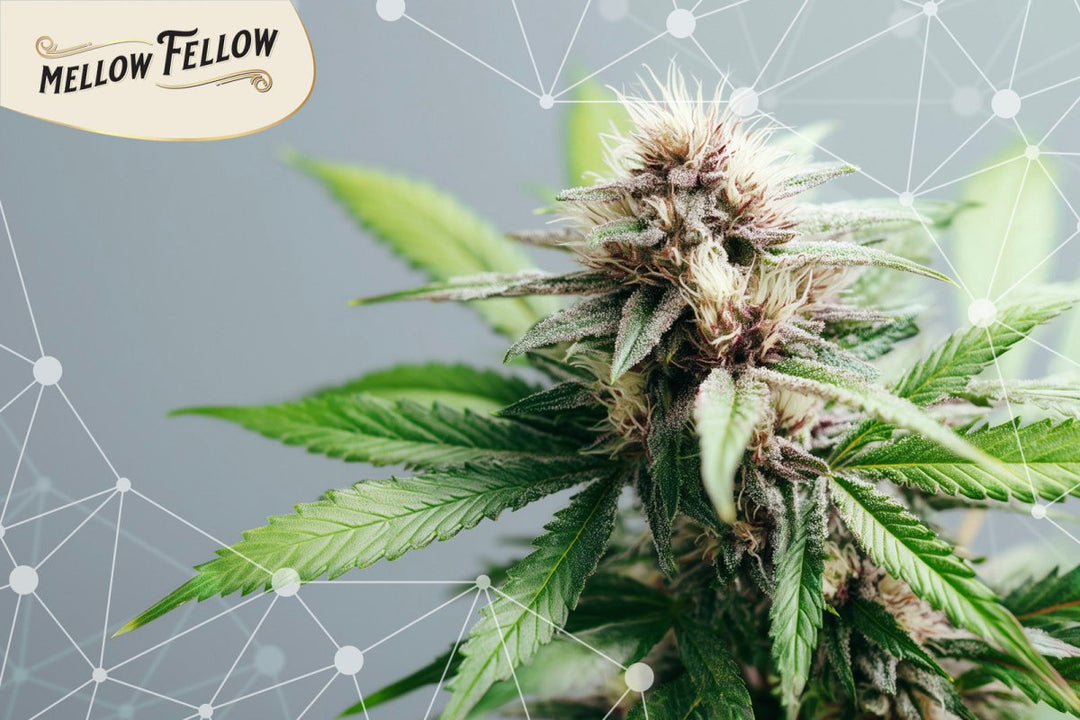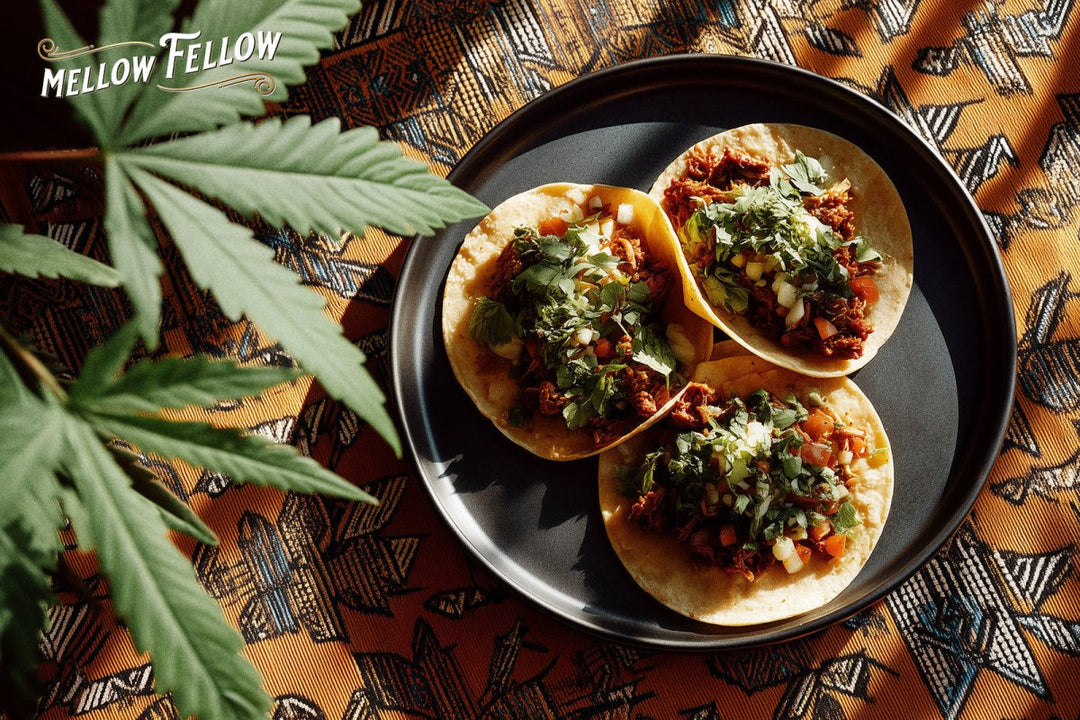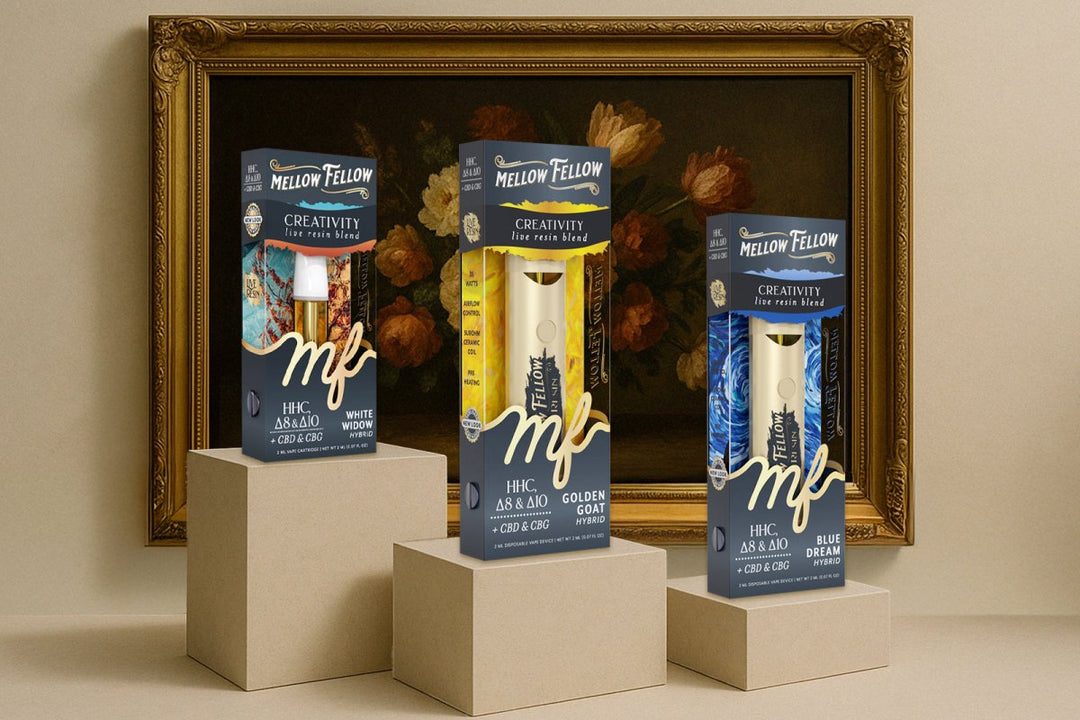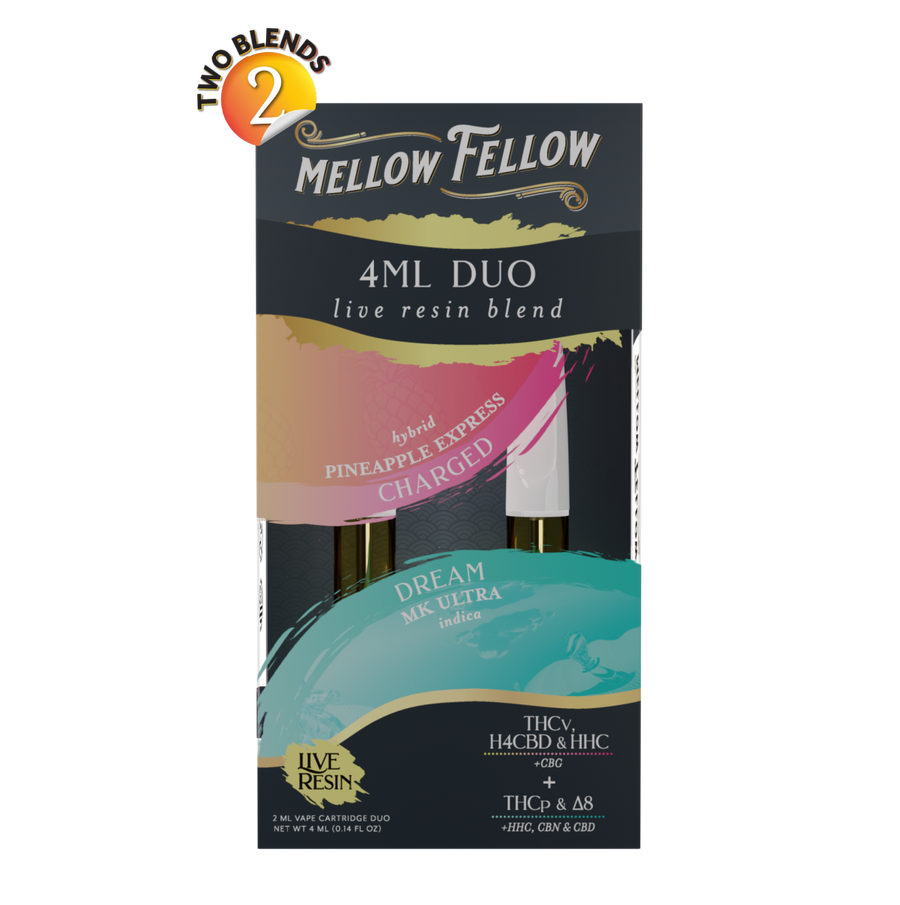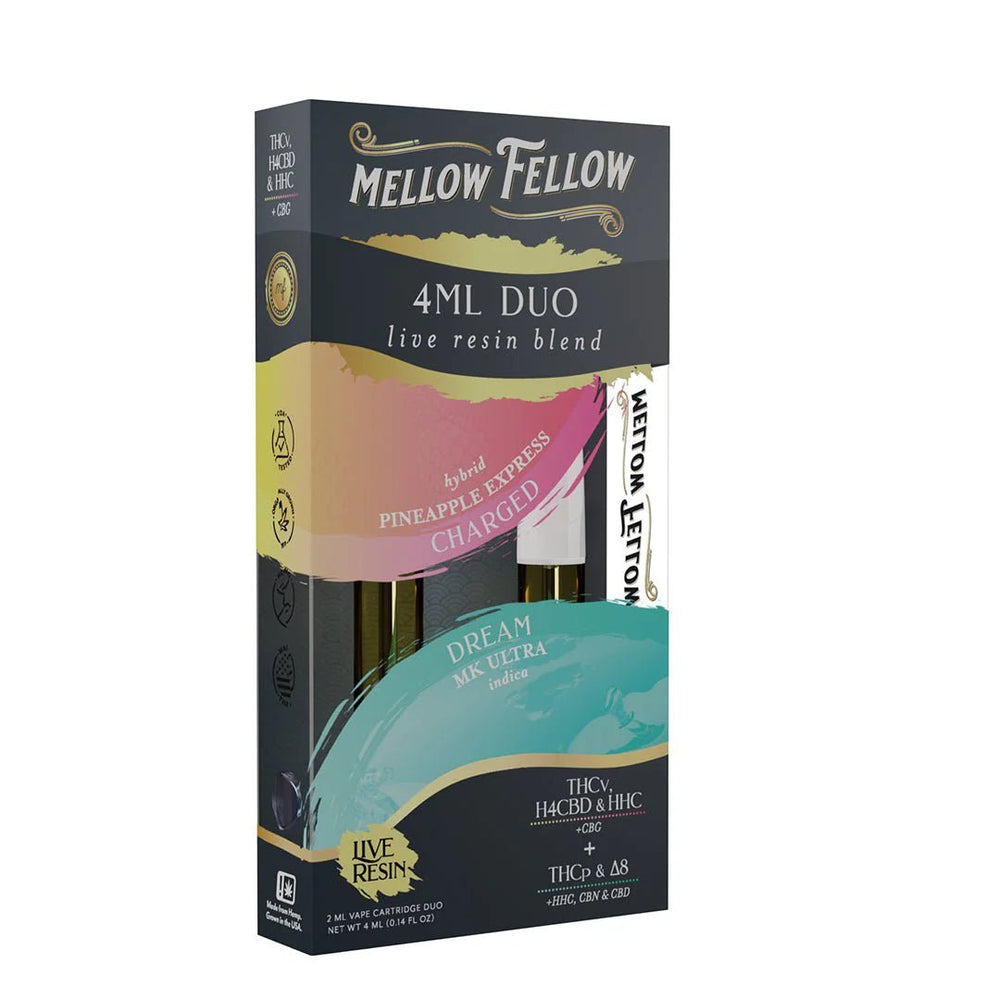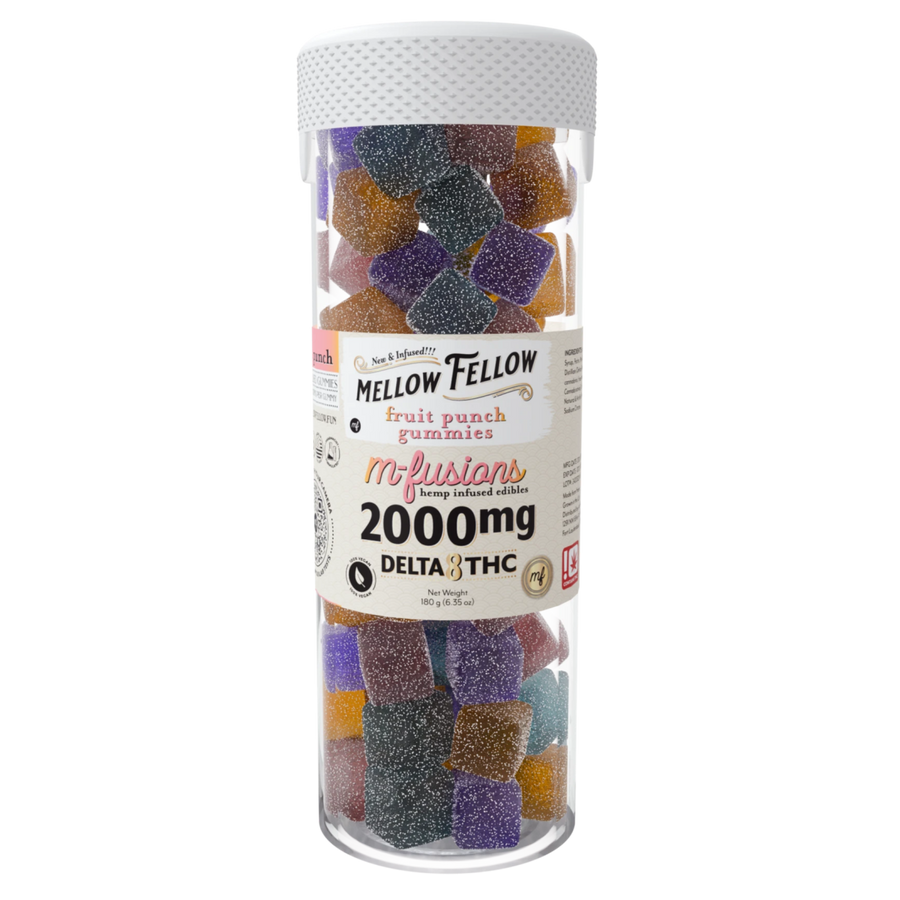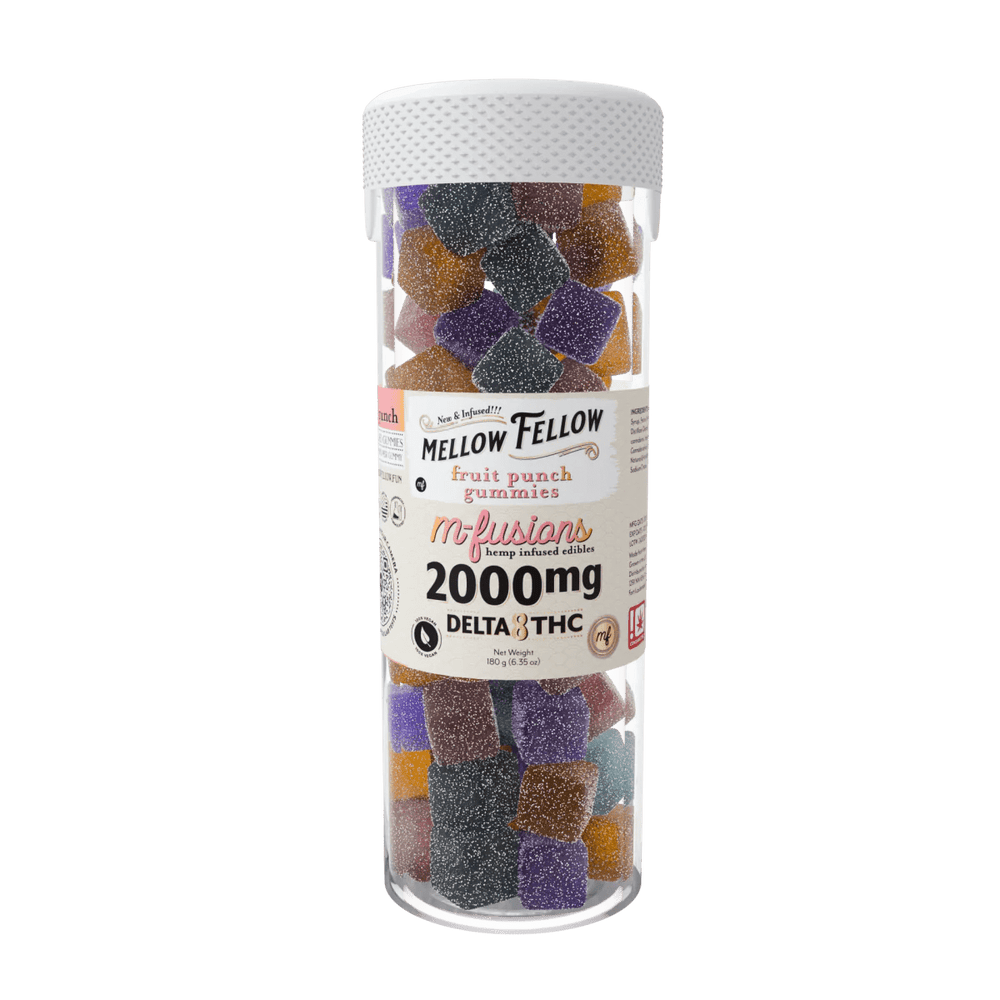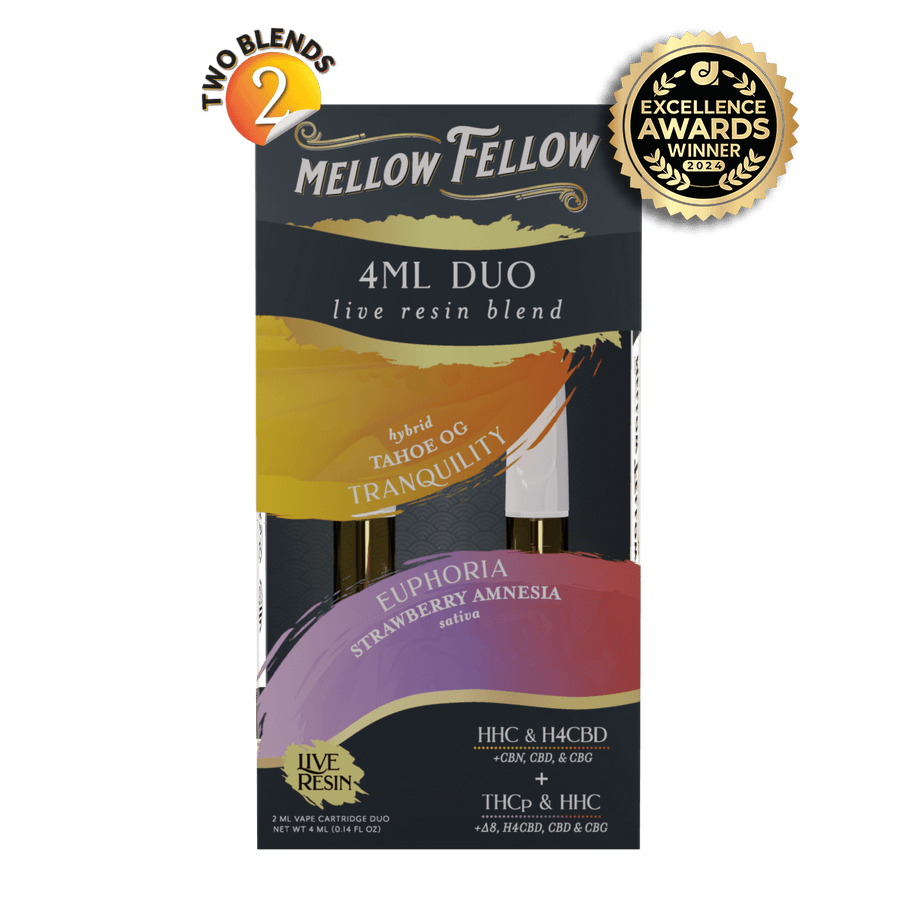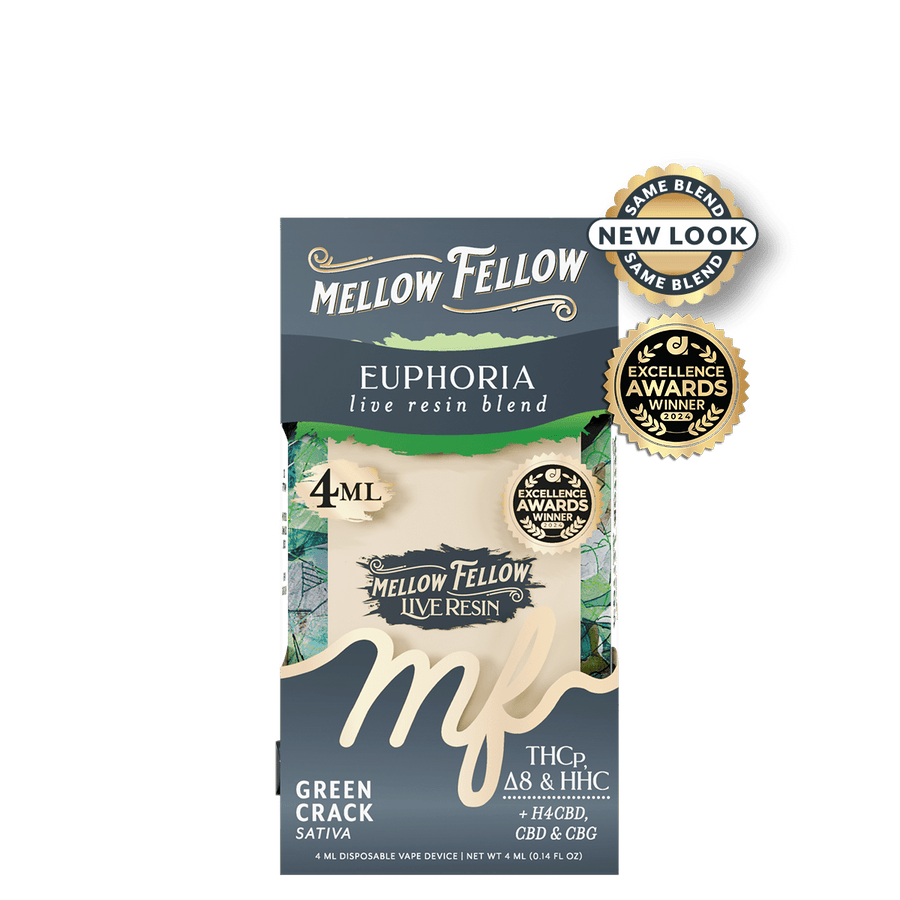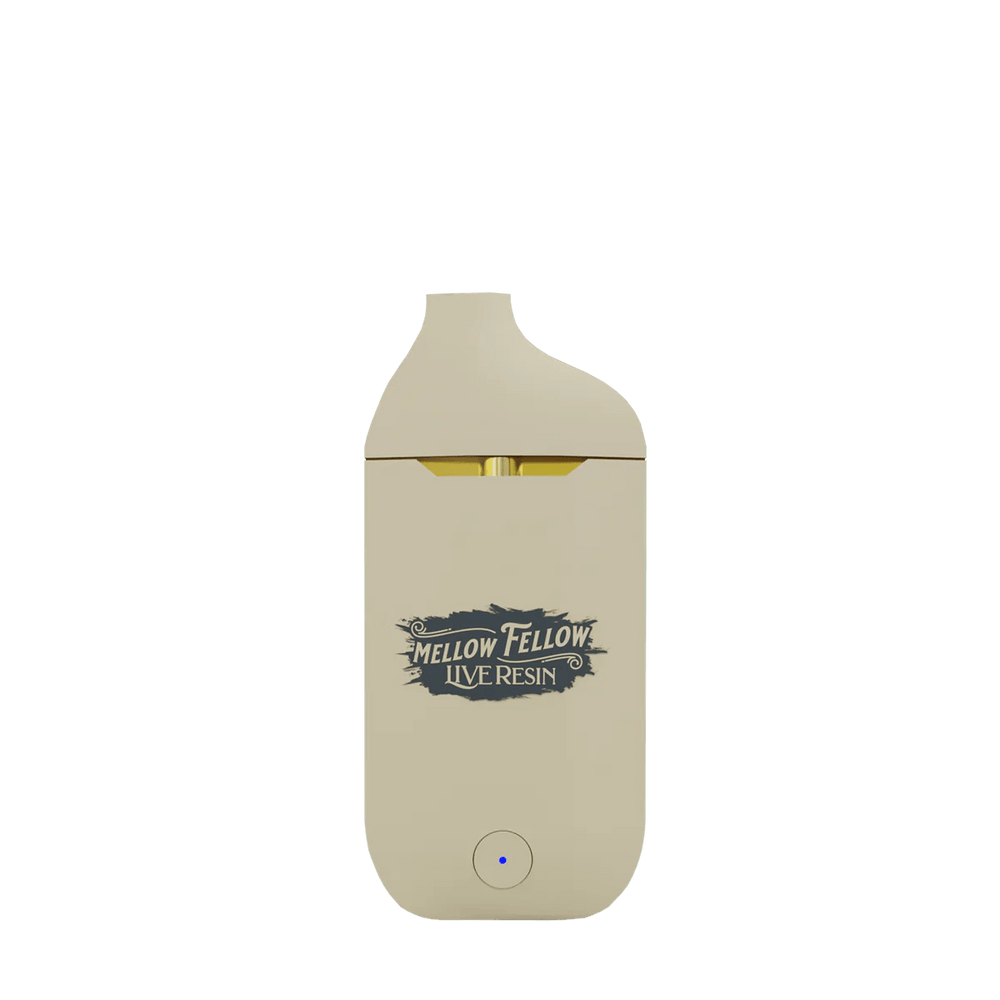
Shop All Products
We offer a wide range of product types in a large variation of cannabinoids. See all products here.

Looking to Learn More?
Looking to learn more about cannabinoids and our blends? We encourage active education about cannabis.
Get 15% off your first purchase when you join the Mellow Fam!
Stay Mellow
We accept
© 2025 Mellow Fellow


